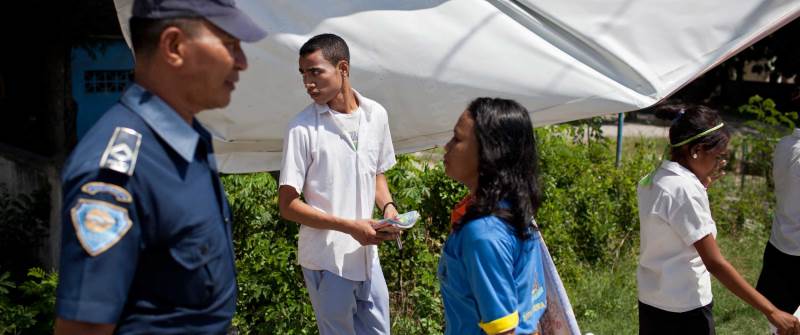KITLV/Royal Netherlands Institute of Southeast Asian and Caribbean Studies

- This event has passed.
Seminar by Todd Wassel | ‘Political, iterative, culturally sensitive security and justice reform in Timor-Leste’
08/11/2016 @ 15:30 - 17:00

Security sector reform and access to justice have become standard items on the aid agendas of the United Nations Department of Peacekeeping Operations missions as well as those of a broad range of donor countries over the past 15 years. This is especially true as the aid attention has shifted to fragile and conflict affected states. Much of the donor focused work on security and justice has concentrated on technocratic solutions coupled with infrastructure investments. However, these reform programs are often devoid of politically minded, locally based initiatives that draw on the history of the state, elite politics, customary justice practices, and social linkages.
Community policing has become one type of standardized project deployed within security and justice reform projects despite the fact that there are numerous, and conflicting, models of community policing practice let alone implementation designs. Even when linkages are made between theory and practice of community policing, the delivery of programs often fail to take into consideration the socio-political environment in which the police operate and are influenced by. This lack of connection to political realities often strands programs without sustained political support, ownership by the police, or increased demand for similar services by the population.
This presentation draws on research analyzing how and why “community policing” has taken hold in Timor-Leste only recently rather than against the backdrop of a decade of community police training and development by successive UN missions. It uses evidence gathered during 5 years of implementing a community policing program by the Asia Foundation to show how the shift in support for community policing occurred using politically minded, iterative approaches. It argues that by using a combination of constructs, including political economy analysis, theories of change, complexity science and models for measuring institutionalization, programs can increase their chances of sustained impact by developing locally-led programs that conform to the cultural and political realities on the ground.
Todd Wassel is the Deputy Country Representative, The Asia Foundation in Timor-Leste. He has working on conflict, land dispute, and human rights in Asia since 1999.
Please register if you wish to attend: [email protected].
Details
- Date:
- 08/11/2016
- Time:
-
15:30 - 17:00
- Event Category:
- KITLV Events
Organizer
- KITLV
- kitlv@kitlv.nl
Venue
- KITLV, Room 138
-
Reuvensplaats 2
Leiden, Netherlands + Google Map



